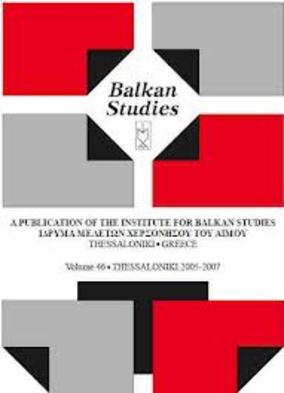Serbia and Greece in the First World War : An Overview
Part of : Balkan studies : biannual publication of the Institute for Balkan Studies ; Vol.45, No.1-2, 2004, pages 59-80
Issue:
Pages:
59-80
Section Title:
Greek-Serbian relations in the first half of the 20th century
Author:
Abstract:
The legal basis of Serbo-Greek cooperation during the First World Warwas the defensive alliance treaty and a military convention, signed in June1913 prior to the Second Balkan War. The military convention providing themilitary assistance that was fully applied during the second Balkan War,became a source of misinterpretation and misunderstandings during the firsttwo years of the Great War. In Pro-German Greek governments, it was thedefensive alliance in case of Bulgarian attack only, but not in case of theattack coming from the third side (Austria-Hungary). Differing views, motivatedby different priorities in potential participation of the Greece in the GreatWar, and disagreements on the interpretations of Greek-Serbian treaty ofalliance of 1913, were not the obstacle for the Allies-organized transfer ofdefeated Serbian troops to Corfu in early 1916. The axis of the Greek-Serbiancooperation was, in the following years, based on mutual understanding betweenthe two Premiers N. Pasic and E. Venizelos. Confident to eventualAllied victory, they were both fully committed to the Serbian-Greek strategicpartnership as a main precondition to the long-term Balkan stability. Despitea number of internal and external pressures, Pasic and Venizelos have managedto overcome all the obstacles that were on the way of the mutually valuableGreek-Serbian political and military cooperation, especially on the Salonica(Macedonian) Front.
Subject:
Subject (LC):
Keywords:
Ελλάδα-Σερβία, Πρώτος Παγκόσμιος Πόλεμος




